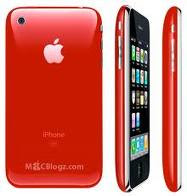The Verizon iPhone 4 is slower than its AT&T counterpart, according to Metrico, a company that tests mobile device performance. This bit of bad news for the long-awaited device follows reports that it additionally suffers from antenna signal loss when held in the "death grip" — a phrase coined after the release of the AT&T iPhone 4, which was found to drop reception bars when in held in a specific, but mostly natural, way.
According to the Metrico report released March 7, differences it discovered between the Verizon iPhone 4, which is based on CDMA technology, and the GSM-based AT&T iPhone 4 depend on how the smartphone is being used.
"The AT&T iPhone experienced double the mean data download speed of the Verizon iPhone," the firm said in a statement, " but the mean load time for an average Web page was about the same on both devices."
Metrico also found differences when the devices were being used in motion — in a car, say. "The AT&T iPhone successfully completed around 20 percent more data download sessions than the Verizon iPhone," reported the firm. "The results were opposite when the iPhones were stationary; the Verizon iPhone was more consistent uploading data when stationary in comparison to the AT&T iPhone, with a 10 percent success rate."
The findings echo those of early reviewers. The Wall Street Journal's Walter Mossberg, in a Feb. 3 review, reported that he performed "scores of speed tests" on the two iPhones, which he mostly used in Washington D.C., Virginia, Maryland and, for a day, Chicago. "Despite a few Verizon victories here and there, AT&T's network averaged 46 percent faster at download speeds and 24 percent faster at upload speeds," wrote Mossberg. The differences were most notable, he found, when the phones were being asked to perform labor-intensive tasks, such as downloading large numbers of e-mails.
"AT&T's speeds varied more while Verizon's were more consistent, but overall, AT&T was more satisfying at cellular data," Mossberg concluded.
David Pogue's experience, reviewing the iPhones for The New York Times, was one that has made so many folks look forward to the iPhone on the Verizon network. He drove around San Francisco — an Achilles' heel for AT&T iPhone coverage — dialing a landline number. Over the course of 30 minutes, the AT&T iPHone dropped the call four times, while Verizon's held it continuously.
Metrico additionally compared the iPhones to other devices on their respective networks. It found the AT&T iPhone to rank near the top on download and upload speeds, "with comparable performance to the Sony Ericsson Xperia, the LG Quantum and the HTC Surround." The Verizon iPhone, however, ranked "below average in data download speed relative to other Verizon smartphones like the HTC Incredible."
The Smartphone Mobile Experience evaluation testing that the phones underwent offer carriers and original equipment manufacturers information with which they can establish a scientifically derived user-experience baseline, Richard McNally, Metrico vice president, said in the statement. Metrico's performance evaluation included performing more than 10,000 Web page downloads, more than 2,000 upload tests and placing nearly 4,000 voice calls.
"The mobile industry is competing on performance, and anecdotal performance information isn't good enough to drive management and marketing decisions," McNally added.
The Verizon iPhone 4 has inspired a number of organizations and Web sites to run performance tests of their own. Consumer Reports found that having a finger on various parts of the phone can cause a "meaningful decline in performance," and so was unable to recommend it. Tech site iLounge held the Verizon iPhone in various bear-hugging ways and noticed a "dramatic, dramatic slowdown" in upload speeds. Analysis group AnandTech, in its testing, found the death-grip issue to have been addressed.
"Getting a case still makes sense," the site reported, "but using the phone without one is no longer something that will dramatically affect phone usability.”
link search :eweek.com


0 comments:
Post a Comment